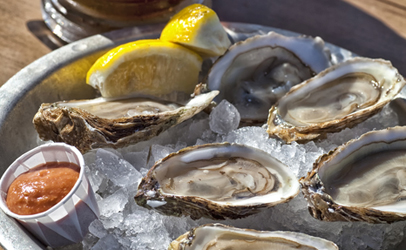 n of live animals from the proposed Food Safety Modernization Act (FSMA) sanitary transportation rule might need a caveat.
n of live animals from the proposed Food Safety Modernization Act (FSMA) sanitary transportation rule might need a caveat.During the U.S. Food and Drug Administration’s public meeting on the rule in College Park, MD, on Thursday, Michael Osterling, executive director of the Shellfish Growers of Virginia, pointed out that shellfish are frequently transported and consumed live and raw.
But live animals – along with shelf-stable foods and compressed food gases (e.g., those used to make soft drinks) – are exempted from the regulation because it was determined they are at little risk of becoming adulterated during transportation.
“We believe that many of the illness outbreaks associated with raw shellfish consumption are caused by temperature abuse between harvest and retail that permits naturally occurring bacteria to proliferate within the shellfish,” Osterling said.
So if foods requiring temperature control to maintain their safety are covered by the proposed regulation, but live animals are exempted, where do shellfish fall?
In order to avoid enforcement confusion, Osterling requested that the agency clarify the rule’s language so that shellfish are expressly not exempted.
“We completely didn’t think about that,” responded Don Kraemer, senior advisor to FDA’s Center for Food Safety and Applied Nutrition (CFSAN). He admitted that the agency had been more focused on “hoofed” animals while crafting the rule.
Staff will now have to think through whether they meant to include shellfish and crustaceans in that exemption or not, he said.
The sanitary transportation rule, the seventh and final major rule under FSMA, was proposed at the end of January and will require shippers, receivers and carriers who transport food by motor or rail vehicles to take steps to prevent the contamination of human and animal food during transportation. A comment period is open on the rule through May 31.





